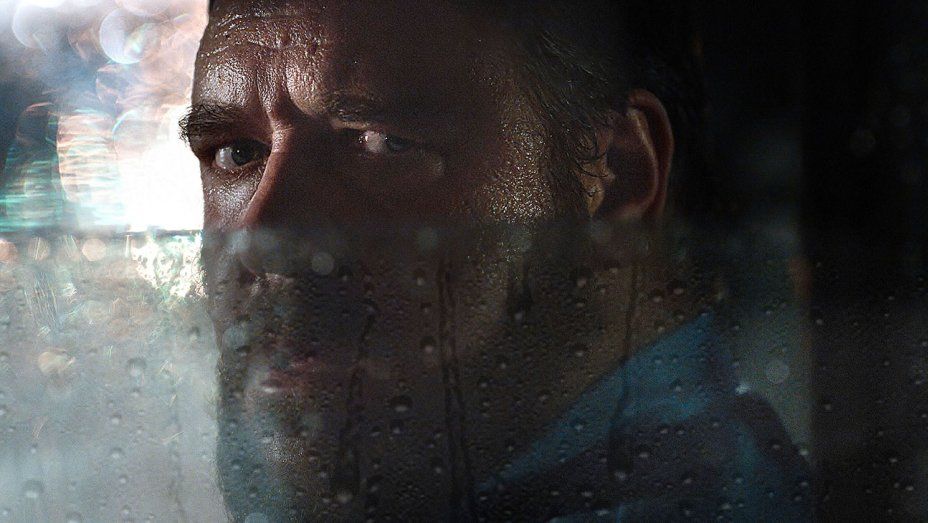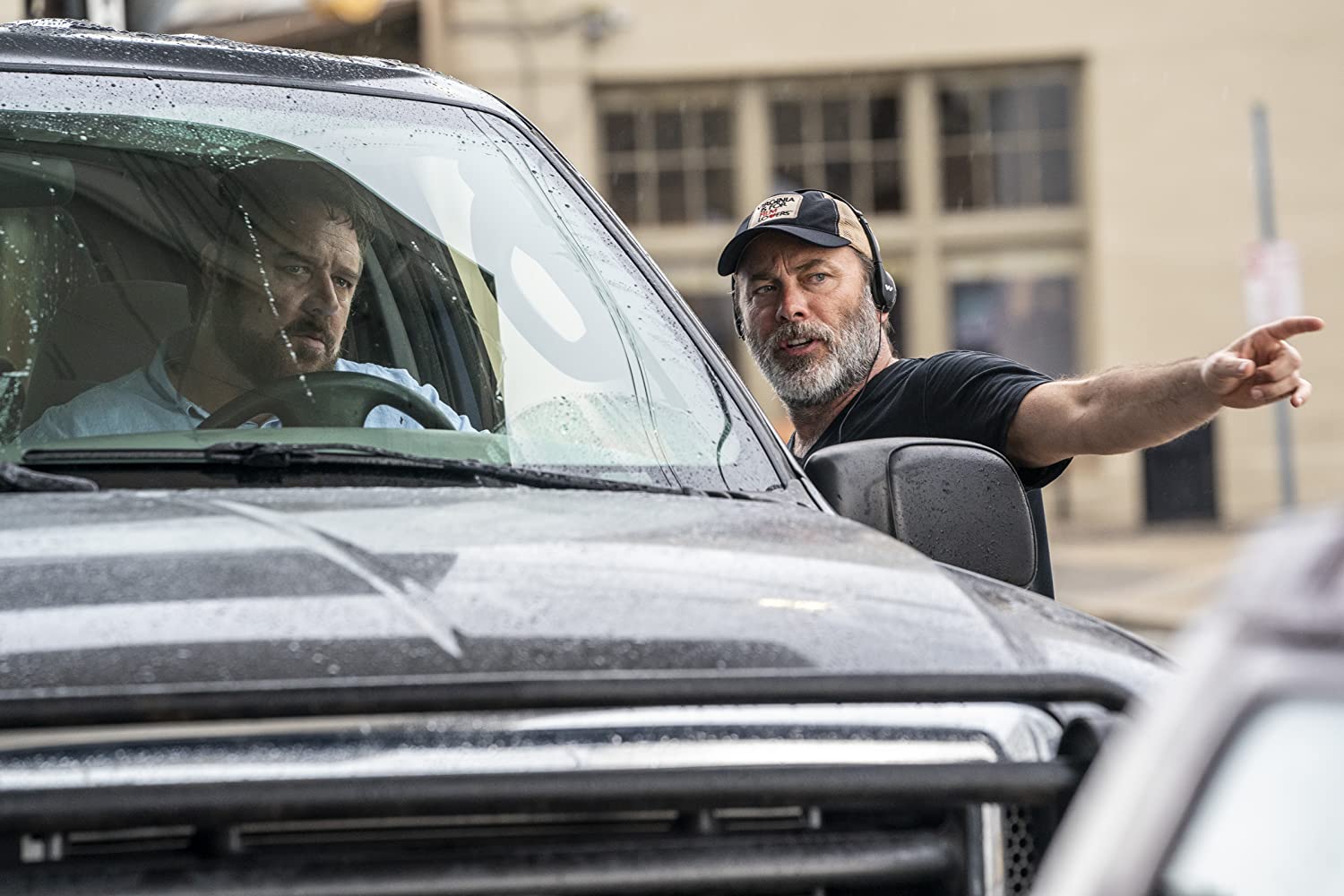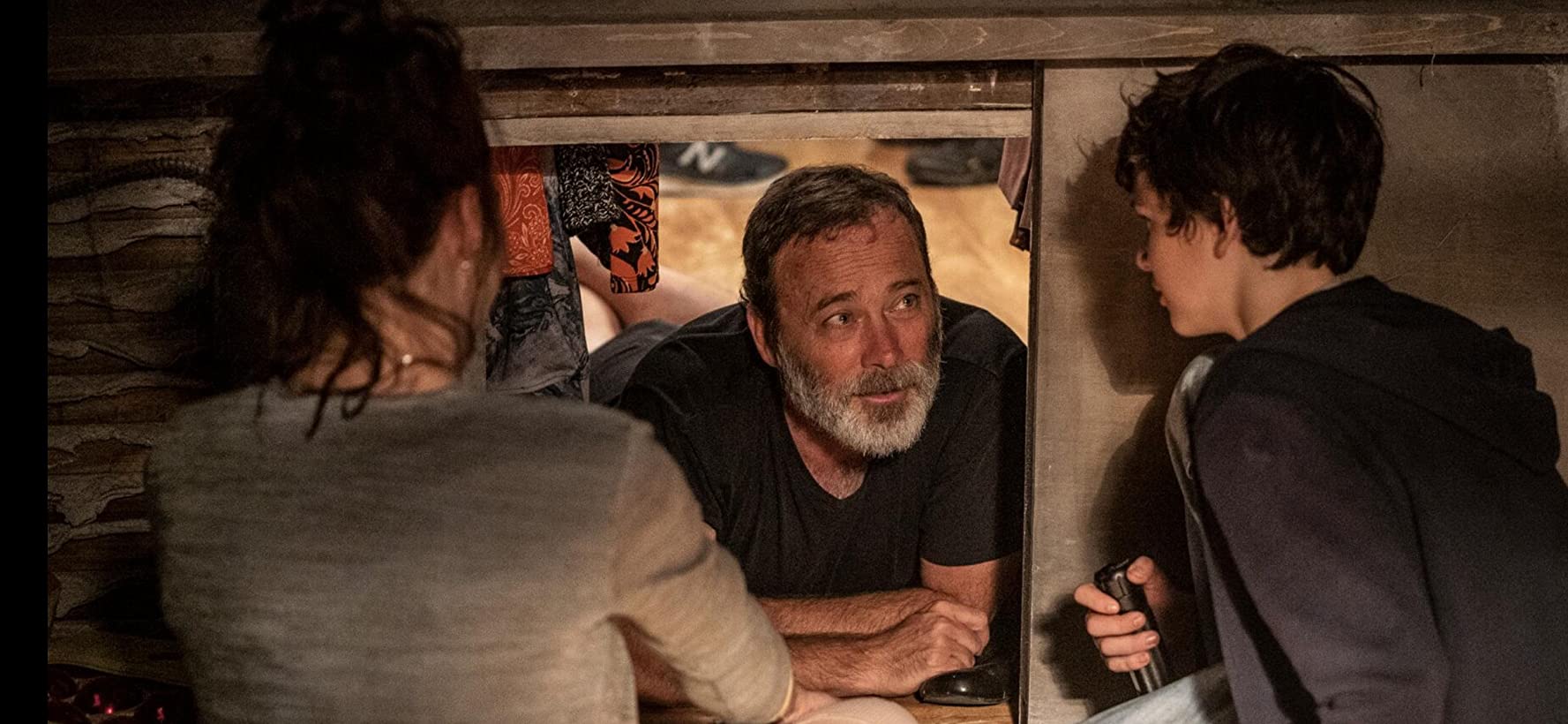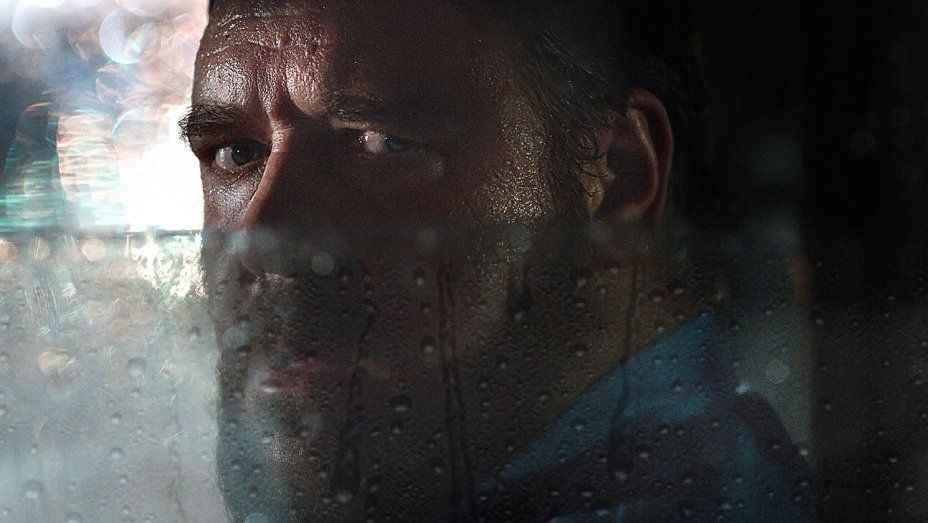By George Lanigan, Second Year, English
The stress placed on single mother Rachel (Caren Pistorius) is amped up from the first moment she is on screen in Unhinged (2020). With the strain of being fired, her ex-husband’s developing divorce settlement and her mother being relocated to a care home, her frustration reaches an apogée in heavy traffic while trying to drop off her son who is late for school.
Rachel takes a shortcut, where at traffic lights she fatefully honks and overtakes a heavy-set Russell Crowe (listed as “The Man’ in the credits), who we witness ominously commit murder and set fire to a house in a bloody pre-credits sequence. After she refuses to apologise, the fragile and embittered man commences an unrelenting hunt for revenge on Rachel, a woman he feels embodies a society that has left him for dead.

Crowe is perfectly cast as the “unhinged” antagonist. His hulking figure and brooding complexion enhance the tension, as he relentlessly clings to his vindictive words: “I need you to learn what a bad day is and I need you to learn how to say sorry”, delivered with such psychopathic intent to make any viewer squirm.
The film falters however when the gritty realism it strives for is blatantly obscured. The police in the film are inept to an exasperating level only seen in action movies and video games, sending a single officer to confront Crowe’s character. They also somehow lose the mass murderer, who is travelling in the exact same grey pick-up truck (and stopping frequently) throughout the film. The general public do not fare much better: an older man is seen casually filming Crowe’s character murdering someone in a diner, rather than fleeing or confronting him.
The dialogue is clunky at times, as one might expect from a blood-fuelled thriller. The phone call in which Rachel is fired escalates in significance within seconds, emphasising its use simply as a plot device. The ending is also rather uninventive (the final scene is noticeably jarring in terms of its tone), but the malevolence and sustained callousness of Crowe’s character are what drives the suspense of the film, which is maintained until the conclusion.

Director Derrick Borte keeps the pace suitably unremitting with sharp editing and an energetic score by David Buckley. Borte uses violence particularly well, sparingly but with a convincing, extreme sense of escalation. The exhilarating stunt work and visual effects are to be applauded, while Pistorius inhabits the protagonist role with an apt mix of horror and disbelief.
Unhinged sets itself a simple task as a psychological thriller, but hints at some under-developed ideas that could have been explored. It feels as if the film is recurrently attempting to disown the society we live in, but it lacks any real sense of poignancy.

A further disappointing by-product of the non-stop nature of the film is that the characters are on the whole under-developed, especially Crowe’s character. Certain factors contributing to his deranged killing spree, such as emasculation through divorce, would have been interesting areas for writer Carl Ellsworth to explore in slightly more detail.
These faults should perhaps not be interrogated too closely, as subtlety and deep moral questioning were doubtless low on Derrick Borte’s agenda. In directing a thriller that will keep audiences on the edge of their seats, Borte has created a predictable but indubitably slick, entertaining and decidedly dark film.
Featured: IMDb
What did you think of Unhinged?









